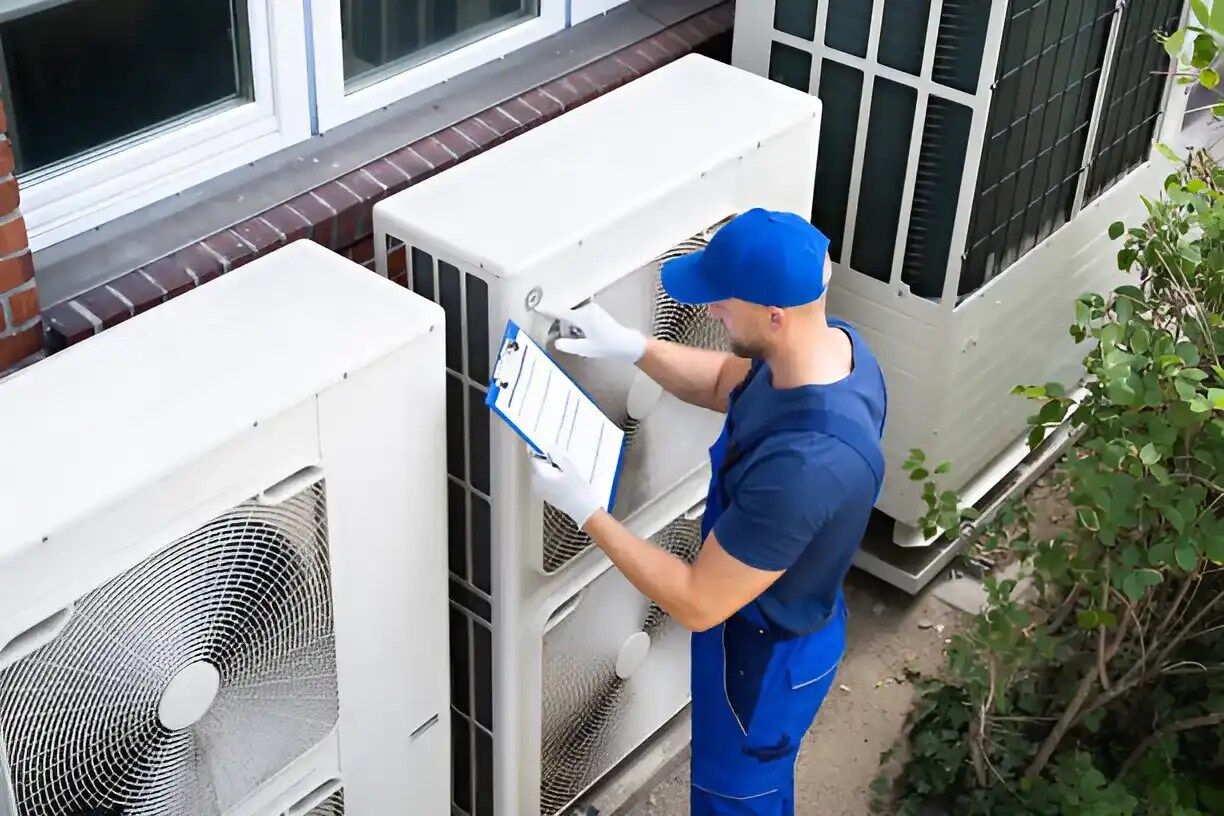Just how to Pick the Right Cooling And Heating System for Your Office Or Home Needs
Selecting the suitable Cooling and heating system for a home or office is no tiny task. It's a process that needs cautious examination of private home heating, cooling, and air flow requirements, factor to consider of different system types, and evaluation of energy performance.
Understanding the Basics of A/c Solutions
A Cooling and heating system, a phrase for Home heating, Ventilation, and Air Conditioning, is a critical component in keeping a comfy and healthy interior setting. The complexity of an A/c system can vary, varying from easy single-room units to complex systems that serve huge industrial buildings. Understanding these essentials is the first action in picking the appropriate Heating and cooling system.
Examining Your Indoor Environment Needs
Relocating from a basic understanding of heating and cooling systems, the following step entails a mindful examination of your details interior climate demands. This essential phase includes assessing your family or office's cooling, air flow, and heating demands. It considers numerous elements such as the dimension of your area, insulation degrees, climate, variety of residents, and specific temperature level preferences. A larger room might demand a much more durable system, while a smaller location could not need as much power. High-quality insulation might decrease heating and cooling demands. Areas with extreme temperatures may require systems with higher performance. One should additionally think about the convenience and health and wellness of occupants, as insufficient home heating or cooling can result in discomfort or health and wellness problems. This extensive analysis makes sure that your chosen cooling and heating system will certainly satisfy your special needs.
Checking Out Various Kinds Of Heating And Cooling Equipments
Browsing with the intricacies of HVAC systems can be challenging. It is critical to recognize the array of HVAC varieties readily available, and to make an enlightened selection based on price and effectiveness contrasts. This expedition will certainly provide a clearer perspective on what each sort of heating and cooling system uses.
Comprehending A/c Ranges
Ever questioned regarding the multitude of options when it comes to Cooling and heating systems? Central HVAC systems, the most typical, use ductwork to distribute awesome or cozy air throughout the residence. Packaged heating and air conditioning systems consist of the blower, heating, and cooling parts all in one unit.

Price and Effectiveness Contrast
When checking out the vast variety of HVAC systems, it is critical to think about both price and effectiveness. Originally, less expensive models might show up attractive. They are usually less efficient, resulting in higher energy costs over time. As a matter of fact, much more costly systems have a tendency to be extra energy-efficient, conserving cash in the lengthy run.
For example, central air conditioning systems, though costly, are generally more efficient than window systems. Heat pumps are expensive but use home heating and cooling down abilities, making them an economical, year-round option.
Furthermore, it is necessary to consider the system's Seasonal Power Performance Ratio (SEER) A higher SEER ranking suggests better energy effectiveness, which equates to lower operating expenses (DMAK's HVAC Edwardsville IL Experts). Investing wisely in an appropriate A/c system equates to long-term cost savings.
Energy-Efficiency and Your Heating And Cooling System
The significance of energy-efficiency in cooling and heating systems can not be overstated. The initial step towards an energy-efficient HVAC system is understanding the rankings and choosing the appropriate designs. This will not only benefit the environment but additionally result in substantial expense financial savings.
Comprehending Energy-Efficiency Scores
Why is energy-efficiency essential in your HVAC system? It is crucial due to the fact that it directly affects the operational cost, ecological impact, and general efficiency. Energy-efficiency ratings function as a crucial guide to establish the possible power consumption and cost savings of a cooling and heating system. This score, generally revealed in SEER (Seasonal Energy Effectiveness Proportion) for a/c or AFUE (Yearly Gas Utilization Performance) for heating units, offers a clear sign of the unit's energy performance. Higher scores imply reduced energy use, leading to considerable view website savings on energy bills - DMAK's HVAC Edwardsville IL Experts. As a result, comprehending these scores before buying decision is crucial. It makes it possible for consumers to contrast various versions based on their energy effectiveness, bring about informed choices that prefer both their budget and the environment.
Choosing Energy-Efficient Versions
Just how does one set about choosing energy-efficient a/c versions? Understanding power ratings such as SEER, hspf, and eer is vital. These rankings indicate the performance of the system, with greater values representing higher efficiency. It's also essential to consider the size of the a/c system, as bigger devices often tend to be much more energy-efficient. However, the system dimension ought to be proper for the room to stay clear of energy wastage. An additional consideration is the kind of cooling and heating system. For example, warm pumps are generally more energy-efficient than typical systems. Look for designs that have energy-saving features, such as variable speed electric motors or programmable thermostats. Making an energy-efficient selection can dramatically minimize energy intake and environmental impact.
Cost Benefits Evaluation

After taking into account the various variables that affect the energy efficiency of Cooling and heating systems, it is useful to check out the price benefits that come with these options. In the long run, a high-efficiency Cooling and heating system can pay for itself with power savings, while also raising the residential property's value. When picking a HVAC system, the cost advantages of power effectiveness ought to be More about the author an essential consideration.
Cost Factors To Consider When Selecting a Heating And Cooling System

Installment and Upkeep Aspects of Heating And Cooling Solutions
Browsing the installment and upkeep of HVAC systems can be a complicated job. The process normally requires an accurate understanding of the system's requirements, which might include ductwork installation, electric wiring, and appropriate placing. Professionals in the area are frequently employed to handle this due to the technical abilities called for.
Ignoring maintenance can lead to endangered performance, greater energy usage, and eventually, system failing. Understanding the subtleties of installation and precautionary maintenance is vital when selecting a HVAC system.
Final thought
Finally, choosing the best HVAC system needs a thorough understanding of the fundamentals, evaluation of interior environment needs, exploration of various system kinds, and factor to consider of energy performance and cost. It's essential to think about both installment and upkeep aspects. By thoroughly reviewing these factors, one can efficiently pick the HVAC system that gives ideal comfort and this content effectiveness in both household and business settings.
The intricacy of an A/c system can differ, ranging from easy single-room systems to complex systems that offer large commercial buildings. DMAK's HVAC Edwardsville IL Experts. Energy-efficiency ratings offer as an important overview to identify the possible energy consumption and cost savings of an A/c system.After taking right into account the different factors that influence the power performance of HVAC systems, it is valuable to analyze the expense benefits that come with these options. When selecting a HVAC system, the expense benefits of energy effectiveness need to be an essential consideration
In final thought, picking the appropriate HVAC system calls for a thorough understanding of the fundamentals, assessment of indoor climate demands, exploration of different system types, and factor to consider of power effectiveness and price.